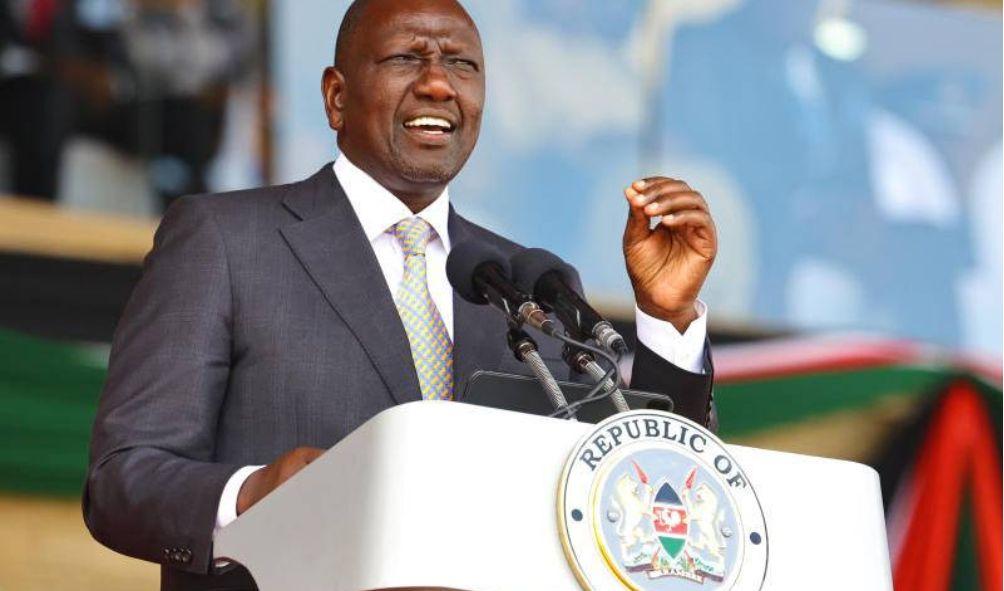Public Outcry and Azimio Pressure Force Ruto’s Tax U-turn in Finance Bill
The Finance and National Planning Committee of the National Assembly was compelled to propose amendments to the Finance Bill of 2023 due to public outcry, pressure from the opposition, and other organizations.
The controversial 3% housing levy was reduced by the House of Representatives. Nevertheless, they upheld plans to double the tax rate on petroleum products.
The bill seeks to raise at least Sh130 billion in additional revenue to fund the Sh3.6 trillion budget for fiscal year 2023/24.
An unnamed committee member stated that the committee, led by Mob MP Kuria Kimani, agreed to amend the bill to reduce the proposed three percent housing levy to one and a half percent.
“Based on the views presented to the committee by Kenyans and the debate the proposal has generated in various media forums, the committee thought that the clause should be proposed for amendment in our report,” the representative explained.
The United Democratic Alliance (UDA) party of President William Ruto then confirmed the news via Twitter.
The proposal to increase the value-added tax (VAT) on petroleum products from the current 8% to 16% was, however, approved by the House of Representatives.
ALSO READ: Murkomen Extends Olive Branch: Offers to Mediate Truce Between President Ruto and Raila
In addition, they proposed changes to the clause regarding the 15% digital levy on content creators, which they want to be reduced to 5%, and they intend to increase rental income tax from the current 7.5% to 10%.
However, they left the other clauses of the report on the Bill, which will be presented to the House of Representatives today, open to amendments by individual members.
During a meeting in Naivasha to finalize its report, a committee conceded the clause that has the country talking.
It occurred despite President Ruto and his deputy Rigathi Gachagua’s adamant stance that the bill should pass in its current form.
Yesterday, Nation was unable to determine if the Sh5,000 limit for both employee and employer would continue to apply.
Curiously, the committee did not propose amendments to other contentious sections of the bill that will also make life more difficult for Kenyans.
Boost tax payments
The committee has not yet considered the proposal to increase VAT payments on maize flour and pharmaceutical products, the increase in duty on imported cement, and the increase in sales tax on small and medium-sized businesses.
There is also a proposed income tax adjustment that would impose a 35% pay-as-you-earn (Paye) tax on those earning Sh500,000 per month, despite pilots’ threats to strike, a 30% tax on per diems, and a tax on beauty products.
ALSO READ: Western Politicians Slam DP Gachagua’s Criticism of Mudavadi During Foreign Trips
Under the proposed Housing Fund, the employer is required to send both employee and employer contributions to the National Housing Development Fund by the ninth of the month following the month in which the deduction was made.
To accomplish this, the bill proposes a new section 31B of the Employment Act of 2007 requiring employers to contribute to the National Housing Development Fund established by section 7 of the Housing Act.
The contributions will accrue to employees who qualify for affordable housing and will be used to finance the purchase of a home under the affordable housing program.
Employees who do not qualify for affordable housing will receive their funds seven years after the first contribution or at retirement age, whichever comes first.
The introduction of additional deductions from employees’ salaries, according to experts, will further reduce their take-home pay.
In a memorandum to Parliament, PricewaterhouseCoopers stated, “This proposal will overburden employers with increased employment costs and may lead to the loss of current or potential employment opportunities.”
At least three members of the committee, speaking on the condition of anonymity, told Nation that they have the approval of President Ruto to implement the changes.
ALSO READ: President Ruto’s Twitter Fiasco: Copycat Moves Raise Eyebrows
The proposal to change the status of staple foods such as maize, cassava, and several other flours from duty-free to standard will also pit the committee against Kenyans.
Agricultural Pesticides
The bill also seeks to change from zero-rated to tax-exempt the status of pharmaceuticals, agricultural pesticides and fertilizers, and the transport of sugar cane from farms to mills.
This effectively raises the price of medicines, healthcare, and food, including locally produced sugar, and contradicts Kenya Kwanza’s repeated pledge to subsidize production.
Additionally, the Kenya Kwanza administration wishes to increase the duty on imported cement, which will signal local producers to increase their prices.
The taxes on beauty products such as wigs, false beards, eyelashes, human hair, and artificial nails, among others, will increase from Sh0.6 to Sh2.5 per stamp, a 316 percent increase.
Mr. Kuria attacked some of his colleagues on Sunday for politicizing the bill.
“It is ironic to hear some members of Congress criticize the bill, but they have every right to propose amendments if they have a better idea, and we will listen,” he said.
ALSO READ: Behind Ruto’s Shift: Experts Unveil Reasons for Abandoning Chinese Borrowing
Despite widespread protests across the country, it is anticipated that a substantial number of lawmakers from the ruling Kenya Kwanza Alliance will support the bill.
President Ruto dared lawmakers to oppose the Finance Bill on June 5. MPs claim in private that certain portions of the bill are unpopular with voters, but they do not dare oppose the President on the issue.
“There are sections that we naturally oppose, but Dr. Ruto’s stance has made it impossible for us to go against the grain,” a North Rift MR explained.
Public Outcry and Azimio Pressure Force Ruto’s Tax U-turn in Finance Bill
HEY READER. PLEASE SUPPORT THIS SITE BY CLICKING ADS. DON’T FORGET TO HIT THE NOTIFICATION BELL FOR MORE UPDATES AROUND THE GLOBE.
